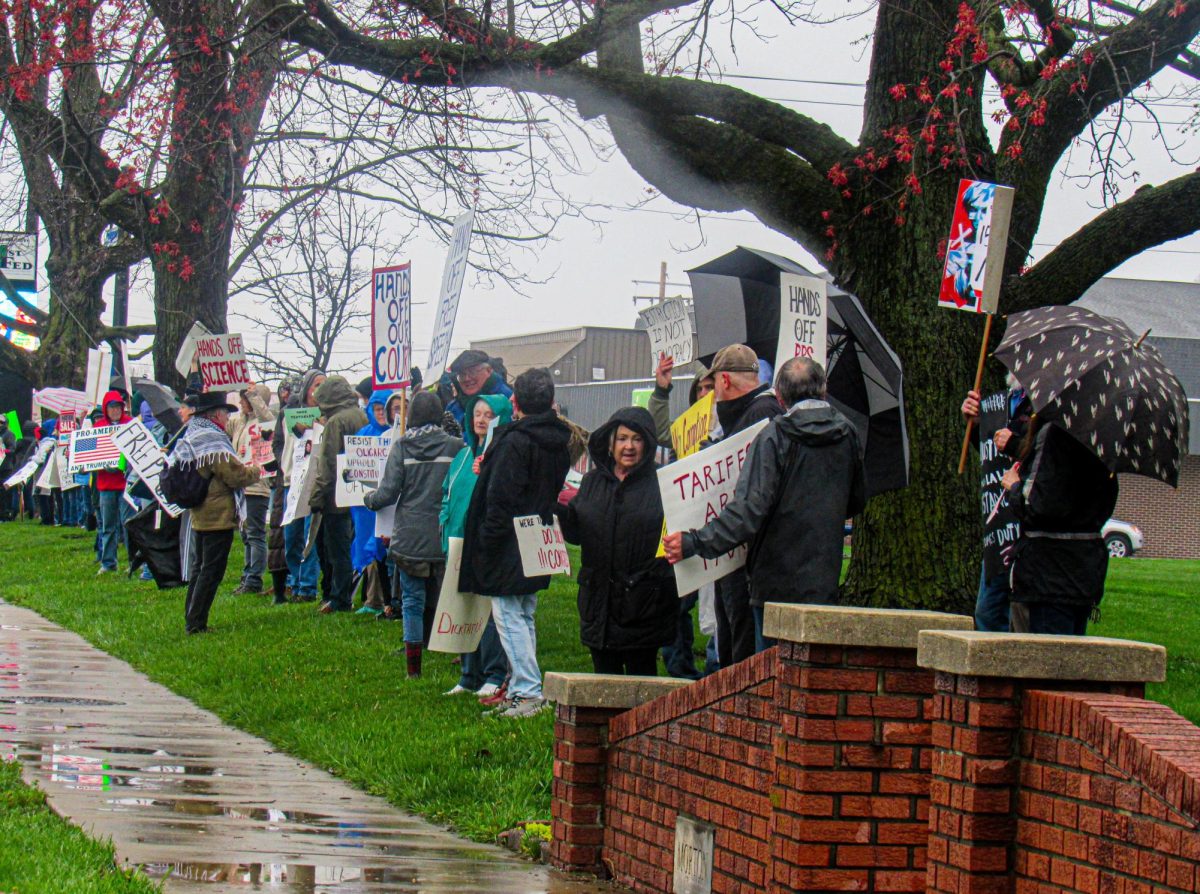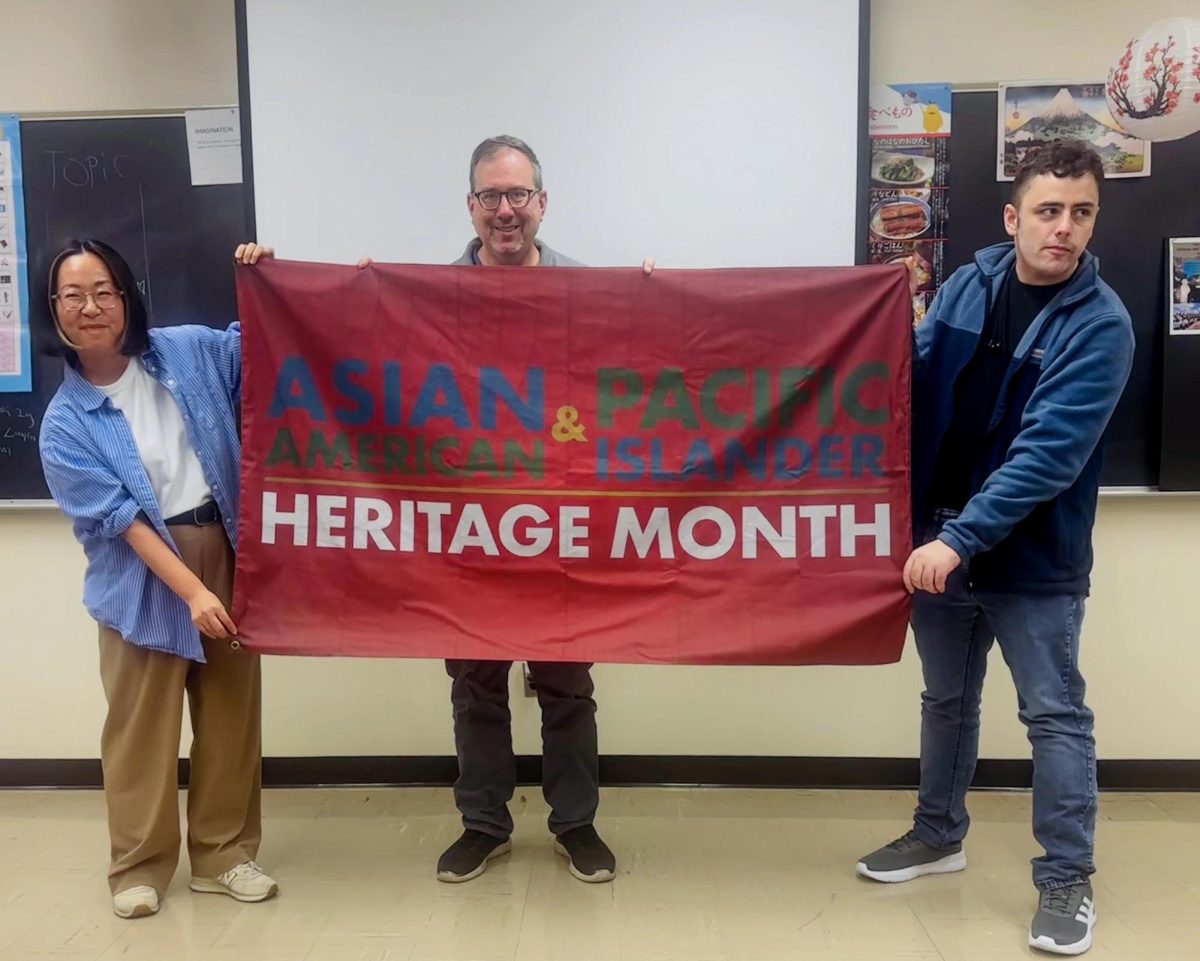Fraternity aims to bring charisma, values to campus
December 5, 2014
A brotherhood that sought to help young African-American men 20 years ago was founded in 1994 at Southern Illinois University Carbondale.
Phi Rho Eta fraternity wanted to teach the men charisma and values promoting change, which it has continued on Eastern’s campus.
Marvin Randolph, one of the founders of Phi Rho Eta, said he and his co-founder, Lamont Taylor, are members of Alpha Phi Omega, a national service fraternity, and through that they have assisted the community in various ways.
Because many young men have joined gangs that act as surrogate families because their actual family structures may be eroded.
Randolph said that because of this, he and Taylor saw where the fraternity could be a remedy and keep the men from falling into those situations.
“The individual has to be most uncomfortable and there is a defining moment,” Randolph said. “We are in the business of creating those defining moments to facilitate change.”
Chris Lewis, the Phi Rho Eta national membership chair, said the organization formed a chapter on Eastern’s campus in 2008 with the principles of ride, respect and excellence through community development.
He said currently about four Etas are walking Eastern’s campus, but in the past, the campus has had as many as 15.
“(We) show that we care about the community that we’re in; we hold ourselves to a high standard,” Lewis said.
Lewis, who is a graduate of Eastern, said the organization was in its infancy when he was close to graduating, and because he was about to graduate, he did not cross until going to Western Illinois University for graduate school.
However, when the organization was just beginning, he remembered it was a time of excitement and anxiety because of the possibilities the Etas could bring to the campus.
Like some of the other fraternities and sororities on campus, the Etas have also put together their share of forums and educational discussions for students such as a program with police and students about racial profiling.
The organization also had an event in the past where members discussed the differences between Greeks and gangs because some view the two as the same, Lewis said.
Lewis said when the Etas first began, they brought a lot to Eastern’s campus, and having the fraternity was a way to see minority students making a difference and showing they care about the community.
“Strive to be the best in what you can do,” Lewis said. “We really reach out and try to incorporate many organizations, not just Greek.”
Lewis said one difference between the Etas and other fraternities and sororities in the nation is that the Etas are a regional organization.
The Etas began in Illinois, so most of its members are from the state. The Midwest is also home to most of its national chapters.
Randolph said in the future, he sees the fraternity expanding more across the nation, starting a teacher/brother mentoring program within every chapter, and implementing its programs in local high schools.
“This organization has evolved over time from being a new fraternity that was not expected to last five years to being trailblazers in a new era in Greek-lettered organization,” Randolph said. “And we have become recognized as one of the most influential organizations on the campuses where we are chartered.”
Despite being an African-American fraternity, the organization is not a member of the National Pan-Hellenic Council, which houses nine of the historically African-American fraternities and sororities.
Lewis and Randolph both said they currently have no plans on joining NPHC, but nothing is impossible, as they have collaborated with the organization and support it.
Roberto Hodge can be reached at 581-2812 or rlhodge@eiu.edu






![[THUMBNAIL EDITION] (From left to right) Head football coach Chris Wilkerson works with his son student assistant coach Peyton Wilkerson at football practice at O'Brien Field on the Eastern Illinois University campus on Thursday.](https://www.dailyeasternnews.com/wp-content/uploads/2025/04/FB_25_O-1-e1744234837107-1200x596.jpg)




![[Thumbnail Edition] Charleston High School sophomore Railyn Cox pitches the ball during Charleston's 8-7 win over Flora High School on Monday, March 31.](https://www.dailyeasternnews.com/wp-content/uploads/2025/04/SBHS_01_O-1-e1743982413843-1200x1023.jpg)



![[Thumbnail Edition] Senior Foward Macy McGlone, getsw the ball and gets the point during the first half of the game aginst Western Illinois University,, Eastern Illinois University Lost to Western Illinois University Thursday March 6 20205, 78-75 EIU lost making it the end of their season](https://www.dailyeasternnews.com/wp-content/uploads/2025/03/WBB_OVC_03_O-1-e1743361637111-1200x614.jpg)




















![[Thumbnail Edition] Eastern Illinois softball senior infielder Briana Gonzalez resetting in the batter's box after a pitch at Williams Field during Eastern’s first game against Southeast Missouri State as Eastern split the games as Eastern lost the first game 3-0 and won the second 8-5 on March 28.](https://www.dailyeasternnews.com/wp-content/uploads/2025/04/SBSEMO_11_O-1-e1743993806746-1200x692.jpg)

















![The Weeklings lead guitarist John Merjave [Left] and guitarist Bob Burger [Right] perform "I Am the Walrus" at The Weeklings Beatles Bash concert in the Dvorak Concert Hall on Saturday.](https://www.dailyeasternnews.com/wp-content/uploads/2025/03/WL_01_O-1200x900.jpg)















